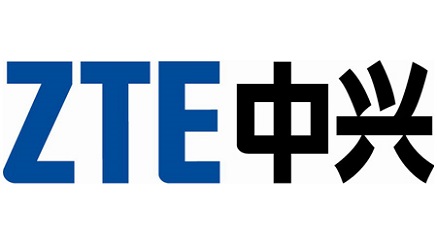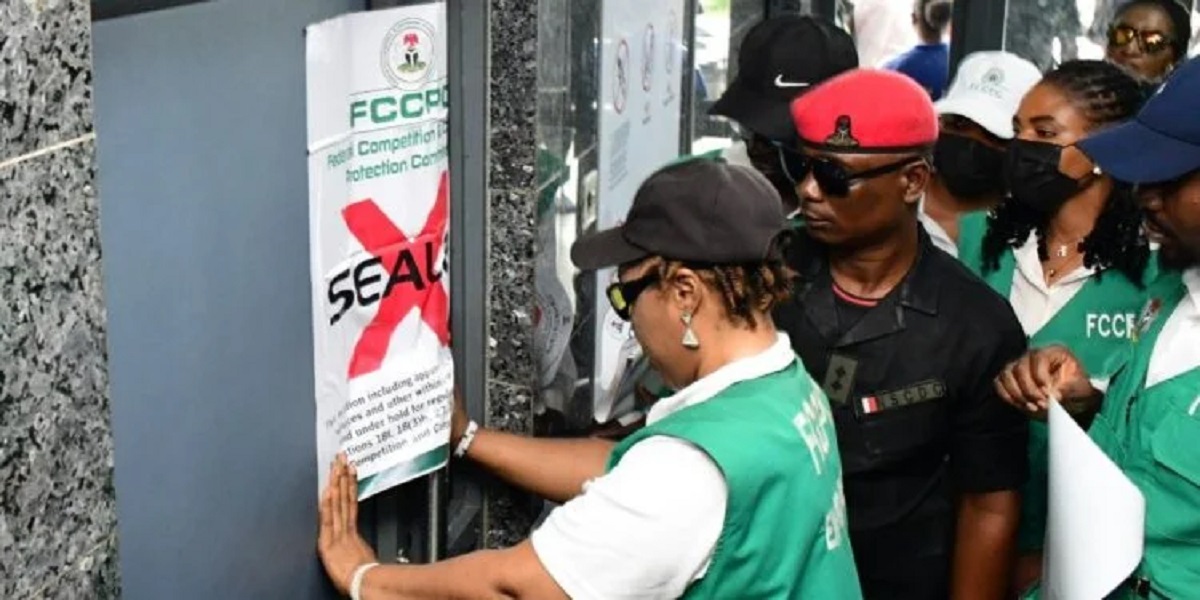News
Rufai Explains Why Abuja, Lagos CCTV Cameras are not Functional

Mr. Ahmed Rufai, former Director-General of the Nigerian Communications Satellite ( NigComSat), has given reason the $470million Abuja, Lagos Closed Circuit Television cameras project has remained non-functional.
He said the simple reason was the Federal Government’s failure to provide “operational funds” for the running of the system after it was successfully completed and tested in 2012.
Rufai disclosed that the required monthly operational budget for the security project as of 2012 was about N11billion, an amount the government was apparently unwilling to release.
Rufai revealed the details while making a presentation to an adhoc committee of the House of Representatives, investigating the project.
The committee, which is chaired by Mr. Ahmed Yerima, is of the view that Nigeria was short changed in the execution of the project and gave the assurance that the investigation would be carried to a logical conclusion.
But, the former NigComSat DG explained, “About N11bn was required as operational funding.
“I learnt it was later reviewed to about N5bn after I left office, but the funding still did not come
.
“The situation with the project is like buying a new car and refusing to provide money to buy fuel. How will the car function? Nothing is wrong with the project, but a lot of people are not aware that this is the simple reason.
“When this project was tested and commissioned, you could see the whole Lagos from Abuja.”
He claimed that the situation became embarrassing that the contractor, ZTE Nigeria, had to provide operational funding for six months upon delivery of the project.
Rufai, who served as a member of a Project Management Team the government set up to supervise the project, added that, the video surveillance cameras, the only physical component easily seen by people, were just 8.5 per cent of the entire project.
The entire project covered “installation of 2,000 digital solar-powered cameras, 1,000 each for Abuja and Lagos; 37 switch rooms, microwave backbone; 37 coalition emergency response systems; 38 video conference subs-systems; 37 e-police systems; six emergency communication vehicles; and 1.5million phone lines for subscribers to generate revenue. ”
He told the committee that the entire project was completed and delivered, while he signed the $399.5million part cost of the project in the form of a loan by the China EXIM Bank. The federal government provided the balance as counter-part funding.
But, Mr. Emeka Eze, DG of the Bureau of Public Procurement, told the committee that any project not processed by his office was “illegal”, with the exception of a project “considered to be national security project.”
Eze stated that no certificate of objection was issued by the BPP, because it did not pass through the office.
“All payments made in respect of this project are illegal, null and void, except if it is a national security project”, he added.
When the committee asked Rufai to respond to the position of the BPP, he replied that the caveat was “national security project”, which was directly authorised by only the President.
“The DG of the BPP was very careful with his choice of words; he said national security project.
“This project is a national security project. The authorisation is from Mr. President “, he said.
In its presentation to the committee, the Debt Management Office confirmed that $399.5m was the loan component of the cost of the project.
It disclosed that while Nigeria had up till 2018 to start paying the principal sum, debt servicing had already consumed $41.8m.
On its part, the contractor, ZTE, denied any wrongdoing in the execution of the project.
Mr. Hao Fuqiang, managing director of the firm, stated that the project was duly completed and delivered to the federal government.
“ZTE completed the execution of the project and acceptance certificates were issued by the federal government, indicating that the project was successfully completed and functioning.”
The Ministry of Police Affairs (now Ministry of Interior) was the supervising ministry.
The committee said all the former ministers who played a role in the project would be invited to testify.
News
DBN Awards N13m in Grants to Tech Startups

Development Bank of Nigeria (DBN) has awarded a total of N13 million in grants to three standout tech startups at the 2025 Techpreneur Summit held in Lagos, reinforcing its commitment to innovation and inclusive growth among Nigeria’s micro, small, and medium enterprises (MSMEs).

The winners include: BuyScrap, a digital marketplace for recyclable materials – N6 million; Qiqi Farms, which connects local farmers to hospitality and export markets – N4 million; Eco-Cyclers, a youth-led recycling initiative based in Enugu – N3 million
Alongside the grant awards, DBN also launched a new digital data asset, a first-of-its-kind platform aimed at enabling data-driven decisions within the MSME ecosystem.
The platform offers deep insights into business trends, sector-specific challenges, and growth opportunities—supporting smarter policymaking and targeted investments.
In his keynote address in Lagos, Tony Okpanachi, managing director/ CEO, DBN, described the event’s theme, “CTRL + SHIFT: Tech Empowered Movement for Naija,” as a strategic call to reimagine enterprise development in Nigeria.
“This isn’t just a keyboard shortcut,” he said. “It’s a mindset reset—powered by technology—to build a more inclusive, innovative, and resilient business landscape. From financing to innovation, DBN remains committed to enabling MSMEs to thrive.”
Okpanachi emphasized that the Summit aligns with DBN’s AMPLIFI Strategy, which integrates digital transformation, sustainability, and scalability into its core programs.
He highlighted initiatives such as the Digital Shift Workshops and the Eco-Innovation Challenge as key steps toward embedding innovation in Nigeria’s MSME sector.
Encouraging young innovators, he added: “The future belongs to those bold enough to imagine and build it. DBN is proud to support the ideas that will shape tomorrow.”
A major highlight was the unveiling of the DBN Data Asset—a digital platform designed to provide real-time, evidence-based insights into Nigeria’s MSME landscape.
The platform combines DBN’s proprietary data with external sources like the National Bureau of Statistics (NBS) to offer a comprehensive view of MSME performance by region and sector.
Jeremy Dan Okayi, DBN’s Head of Strategy, Policy & Innovation, described the platform as: “A reservoir of insight, potential, and direction—built on two years of collaboration and shared vision. This tool will support informed decision-making across the public and private sectors.”
News
FCCPC Shuts France, Belgium, and Italy Visa Centres in Abuja Over Alleged Consumer Rights Violations

In a bold enforcement action, the Federal Competition and Consumer Protection Commission (FCCPC), supported by the Nigeria Police Force and the Nigeria Security and Civil Defence Corps (NSCDC), has sealed off the visa application centres of France, Belgium, and Italy in Abuja over alleged consumer protection breaches and obstruction of regulatory investigations.

The affected centres—located at Mukhtar El-Yakub House in the Central Business District and operated by TLS Contact, a Teleperformance Company—were shut down following reports that they refused to accept formal correspondence from the FCCPC regarding a consumer complaint. The Commission cited further infractions, including obstruction of investigation and alleged assault of its officers during lawful duties.
Speaking to journalists at the scene, Mrs. Boladale Adeyinka, Director of Surveillance and Investigations at the FCCPC, explained: “This is an enforcement operation against TLS. On March 25, 2025, we served them a letter to address a consumer complaint, which they refused to accept. Instead, TLS officers assaulted our team, and in a subsequent visit on June 17, they also allegedly assaulted uniformed police officers.”
Citing Section 33 of the Federal Competition and Consumer Protection Act (FCCPA), Mrs. Adeyinka emphasized that failure to comply with Commission directives constitutes a criminal offense, punishable by imprisonment, fines of up to ₦20 million, or both.
TLS has been ordered to appear before the Commission on June 20, 2025, to provide testimony, submit evidence, and make formal depositions. The company may be held liable for any financial losses suffered by applicants due to the disruption of visa services.
Despite multiple requests for comment, management at TLS Contact declined to respond as of press time.
News
How and Why N210 Trillion is Missing in NNPCL – CFO

Adedapo Segun, chief financial officer (CFO), Nigerian National Petroleum Company Limited (NNPC), has explained why there is a missing sum of N210 trillion in the company’s audited financial statement spanning from 2017 to 2023.

According to Segun, the missing funds are cash calls requested by joint venture (JV) partners and settlement to the JVs.
He spokeat a session of the Senate Committee on Public Accounts chaired by Aliyu Wadada.
Segun was responding to an alarm raised by the committee over missing N210 trillion in NNPCL’s audited financial statement.
Recall that Wadada issued a one-week ultimatum to NNPCL to account for the missing N210 trillion.
Reacting, Segun said, “The N103 trillion and N107 trillion are made up of joint venture cash calls that have been requested by the JV operators and JV cash call payments made by NNPCL, which are yet to be reconciled because governance procedures were not done at that time.
“That is why you see the description reflecting those two items would be washed out because they are two sides of the same transaction, which is the cash calls by JV partners and the settlement by NNPCL.”
However, Habu Sadeik, a financial analyst, in a post on X on Thursday, said Segun’s response was unsatisfactory.
Saidik faulted NNPCL’s response about the fund discrepancies, noting that something is not right with the audited financial statement.
“Forget about the senators’ lack of knowledge.
“The CFO’s response is not satisfactory. Are you saying that cash calls worth hundreds of trillions are just appearing on your FS only in 2024 without 31 disclosure?
“If it’s a cash call, why hasn’t the disclosure said so?
“Which cash call is over 100 trillion?
“Something is definitely not right, and I hope they retrospectively correct that FS.
“Someone somewhere did a chef’s work,” he wrote on X.

 Telecom1 day ago
Telecom1 day agoOver 1m Nigerians Reached through MTN Staff’s Digital and Community Outreach

 General News1 day ago
General News1 day agoNASRDA, Galaxy Space Firm Sign MoU on Satellite Connectivity

 Telecom1 day ago
Telecom1 day agoMafab Gets 0724 Number Series, Launches Mcom 5G Brand

 News1 day ago
News1 day agoDBN Awards N13m in Grants to Tech Startups

 News1 day ago
News1 day agoFCCPC Shuts France, Belgium, and Italy Visa Centres in Abuja Over Alleged Consumer Rights Violations

 News2 days ago
News2 days agoHow and Why N210 Trillion is Missing in NNPCL – CFO

 News2 days ago
News2 days agoPalmPay, Glo Launch “Recharge and Win Bonanza 2” with Exciting Prizes

 General News2 days ago
General News2 days agoIHS Nigeria, United Nations Global Compact Host High-Level Dialogue on Sustainability and Greener Business Practices in Nigeria













